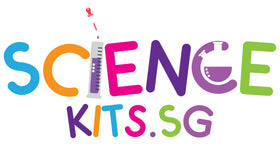
The Role of Science Kits in Developing Critical Thinking Skills
Introduction
In today's fast-paced world, critical thinking skills are more important than ever. These skills enable individuals to analyze information, solve problems efficiently, and make informed decisions. One effective way to foster these abilities in children is through the use of science kits. These hands-on educational tools not only make learning fun but also play a crucial role in developing critical thinking skills from a young age.
What Are Critical Thinking Skills?
Critical thinking involves the ability to think clearly and rationally, understanding the logical connection between ideas. It includes skills such as analysis, evaluation, problem-solving, and decision-making. These skills are essential not just for academic success but for everyday life, as they enable individuals to navigate complex situations and make sound judgments.
How Science Kits Promote Critical Thinking
Hands-On Learning
Science kits provide an immersive, hands-on learning experience. Unlike traditional learning methods that often rely on passive absorption of information, science kits require active engagement. Children manipulate materials, follow procedures, and see real-world applications of abstract concepts, which solidifies their understanding and fosters a deeper level of cognitive engagement.
Encouraging Inquiry and Curiosity
Science kits naturally stimulate curiosity and encourage children to ask questions. This inquiry-based learning is foundational to critical thinking. When children wonder "why" or "how," they begin to explore and seek answers, fostering a mindset of investigation and discovery. Kits often pose challenges that require kids to hypothesize and then test their ideas, mirroring the scientific method.
Step-by-Step Problem Solving
Many science kits guide children through step-by-step experiments, helping them understand the process of scientific inquiry. This structured approach teaches them to formulate hypotheses, conduct experiments, observe results, and draw conclusions. Each step in this process enhances their problem-solving skills, as they learn to think methodically and systematically.
Analytical Thinking
Analyzing results is a key component of many science kit activities. Children learn to interpret data, compare outcomes, and identify patterns or anomalies. This analytical thinking is crucial for evaluating evidence and making informed decisions. Kits that involve measuring, recording, and analyzing results from experiments help children develop these essential skills.
Decision Making and Adaptability
Science kits often present problems that require decision-making based on evidence. For instance, if an experiment doesn't go as planned, children must decide how to troubleshoot and adapt their approach. This process of evaluating options and adjusting strategies enhances their ability to make informed decisions and adapt to changing circumstances.
Case Studies and Real-Life Examples
Educational Insights
Educators have long recognized the value of science kits in the classroom. "Science kits provide an excellent way for students to engage in hands-on learning, which is critical for developing problem-solving and critical thinking skills," says Jane Doe, a middle school science teacher. "I've seen students become more confident in their abilities to tackle complex problems through the use of these kits."
Success Stories
Many successful scientists and professionals credit their early interest in science to playing with science kits. Dr. John Smith, a renowned physicist, recalls, "My fascination with science began with a simple chemistry set I received as a child. It sparked my curiosity and set me on a path of lifelong learning and discovery."
Choosing the Right Science Kit to Develop Critical Thinking
Selecting the right science kit is crucial for maximizing its educational benefits. Here are some tips for parents and educators:
- Age Appropriateness: Ensure the kit is suitable for the child's age and skill level.
- Educational Value: Look for kits that emphasize critical thinking and problem-solving skills.
- Variety of Disciplines: Choose kits that cover different scientific fields such as biology, chemistry, and physics to provide a well-rounded experience.
Recommended kits include the "Snap Circuits Electronics Exploration Kit" for budding engineers, the "Magic School Bus Chemistry Lab" for young chemists, and the "National Geographic Mega Science Series" for a broad range of experiments.
Conclusion
Science kits are more than just toys; they are powerful educational tools that play a significant role in developing critical thinking skills in children. By engaging in hands-on experiments, asking questions, solving problems, and analyzing results, children learn to think critically and approach challenges with a scientific mindset. Investing in science kits is an investment in a child's intellectual growth and future success.
